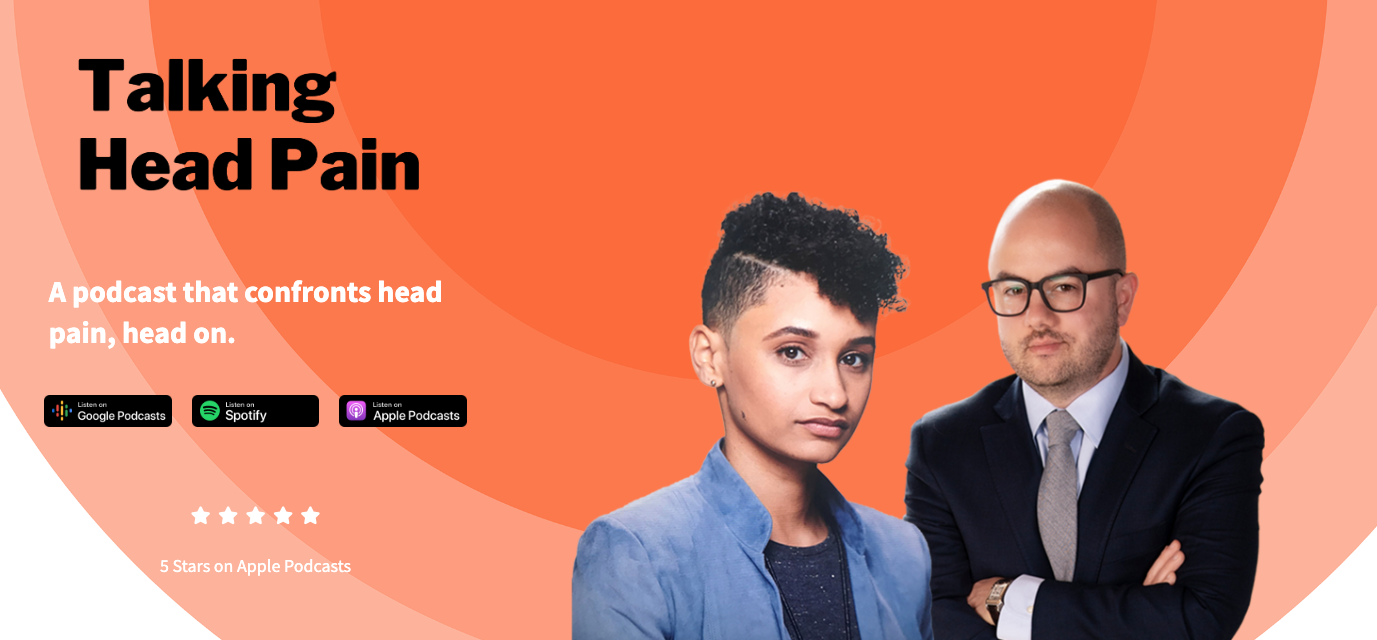
Managing Migraine at Work: Questions for a Migraine Podcaster
Interview to Joe Coe, host of Talking Head Pain who has been living with migraine for 20 years, shares how he handles head pain along with his career.

TALKING HEAD PAIN PODCAST — Although each person’s experience with migraines is unique, Coe has developed a level of expertise in the field through personal experience, advocacy efforts, and podcasting. Inquired about how he manages unforeseen migraine attacks at work, the strategies he has acquired over the years to navigate through the day when a migraine is looming, and his top advice for individuals balancing a career with this chronic condition, here are the insightful tips he provided.
HealthCentral: Your migraine is well-managed now, which is amazing. But back when you had those frequent attacks, what did they feel like and how did that impact your ability to do your job?
Joe Coe: I would get attacks on a weekly basis, some that would last multiple days. Bad attacks would feel like I was being stabbed in my eye with a sharp object. I would have extreme light sensitivity and I would feel like nothing could stop the pain. I remember at one point putting my head in the freezer. During those attacks, I wouldn’t be able to work. During mild or regular attacks, I would have a hard time focusing on work. It would bother me to use a computer.
I didn’t realize how much it impacted me until I got my migraine under control. The baseline pain of having a headache, so not a full migraine attack but a symptom of migraine, nearly every day does distract you and consume energy. I’m happy to have that energy now to help people in my role at the Global Healthy Living Foundation.
HealthCentral: Are there any tactics you’ve found helpful for talking to a manager or colleagues about migraine so that they can also give you the grace you deserve?
Joe Coe: Be honest. I say something like this: “Listen, I get you might not understand this. Let me explain how migraine has impacted me and others. When I get a migraine it’s not just a bad headache or something you experience after a hangover. Sometimes I don’t know when it will end. And aside from pain, I can have intense light sensitivity, fatigue, and sometimes even forget words.” Just be real and understand that this isn’t their lived experience so they might not have a frame of reference to understand. Approach folks with compassion, even when it’s frustrating. Especially if you want them to hear your perspective.
HealthCentral: What are the best tricks you’ve learned over the years to get through the workday when a migraine is lurking?
Joe Coe: The most important thing I’ve learned about managing migraine is to be proactive. When I start getting more attacks, I speak up and talk to my neurologist or primary care provider. I ask if there are ways to optimize my treatment and if I should consider any complementary therapies. I also find ways to give myself and others grace. Sometimes I might not be able to engage in the world in the way I want because I have migraine. And coming to terms with that is important. It’s equally important for me to not settle; I deserve to give myself all the opportunities to live pain- and migraine-free.
A few other things I’ve found helpful for work settings:
- I wear glasses like Theraspecs. They help me with my light sensitivity.
- Natural lighting is great for me, but fluorescent overhead lighting is not. If you’re the same, ask about lighting accommodations.
- I rely on comforting items like a peppermint oil roller.
- With more digital meetings and Zooms, it’s important for me to break from both sitting and staring at the computer screen. When the weather’s nice, I go for a brief walk. Otherwise, I find ways to move around and rest my eyes.
Read the whole interview here: https://www.healthcentral.com/condition/migraine/managing-migraine-at-work-questions-for-a-migraine-podcaster






